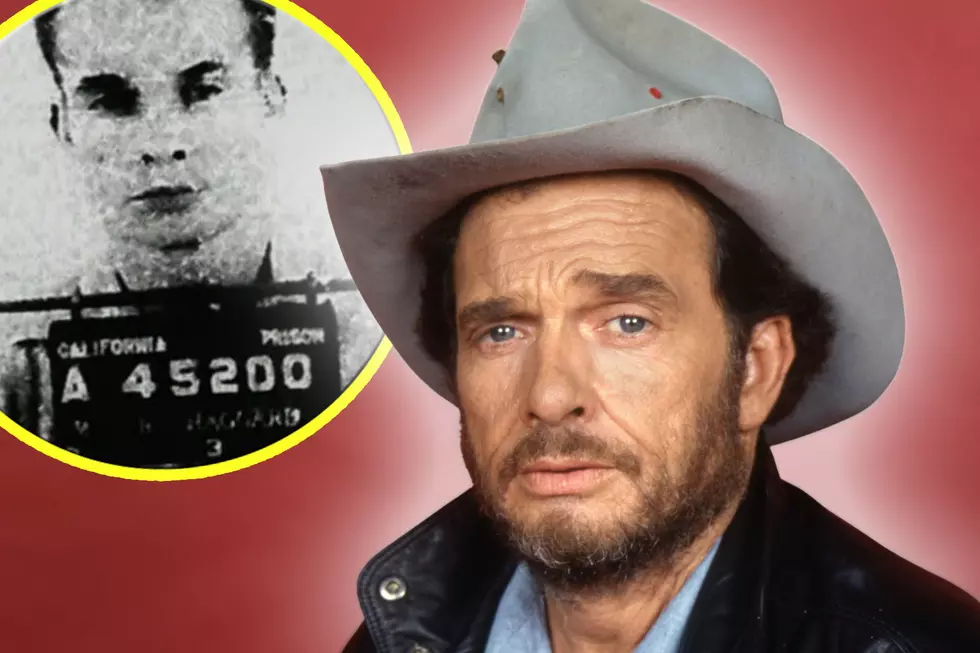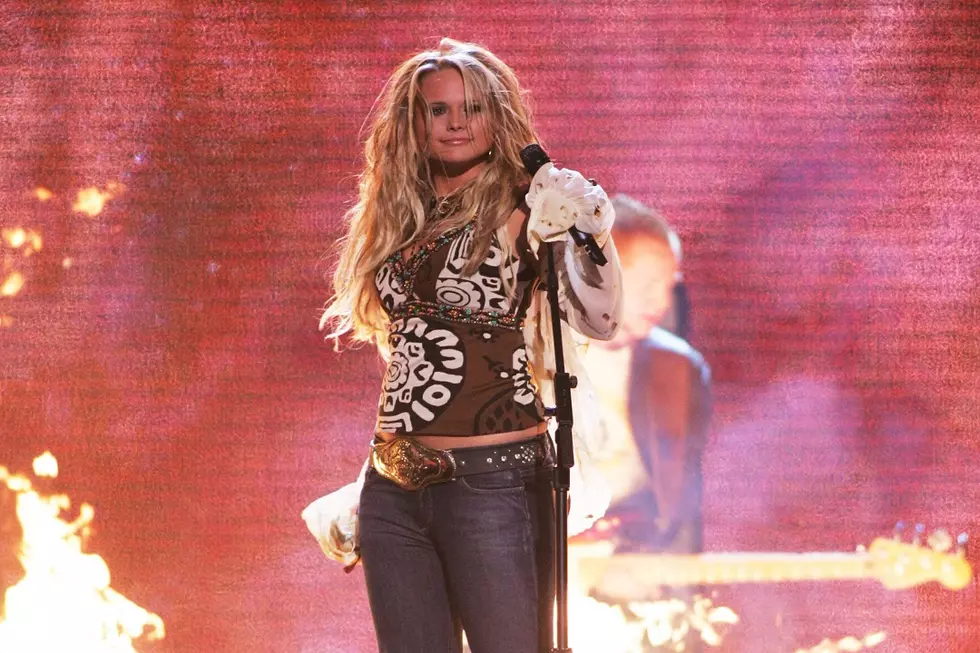
Alan Jackson, Rascal Flatts + More Share Labor Day Blessings
It's been 116 years since the U.S. Congress declared Labor Day a national holiday, and on Monday, September 6, we will once again celebrate the people in every occupation whose work makes this nation great.
Labor Day weekend also signals the unofficial end to summer, and many of the hottest country stars are taking a look back at some of the toughest jobs they had prior to making their mark in music. Artists such as Kenny Chesney and Rascal Flatts also talk about the fans who keep them "employed" on the road and on the radio.
Alan Jackson's songs are all about the working man. "I've always written songs and recorded songs, other people's songs, about working people, and the working life because that's where I'm from," says the singer-songwriter. "I'd already had jobs and worked as a grown person before I ever even thought about being in the music business, so I come from that background, and ... although I hadn't had a job in a long time [laughs], I still remember a lot about it, and I remember what the lifestyle is, and I still appreciate that."
Montgomery Gentry's Troy Gentry had a great boss when he was growing up -- his father. "He started out when he was I think in his early twenties with his first chicken restaurant and had always done them," notes Troy. "I didn't know anything else but the restaurant business up until, I guess, in the last 15 or 20 years when he got into the bar business. I got in there, would bartend, and help wait tables and work in the kitchen. Throughout the summers, and ... nights I wasn't playing music, I was in the club helping Dad out."
"It's about the fans," says Rascal Flatts' Joe Don Rooney. "The fans employ us as artists. Sometimes we don't realize that, but we've been very fortunate to have a lot of success. And looking back it's like, 'Wow, they've employed us for awhile now and for a lot of different things.'"
There aren't many artists who have a connection to their fans like Kenny Chesney, whose tours have played for more than a million fans each year for the past several years. He explains that he and his fans aren't very different. "I always took pride in the fact that when me and the band hit the stage, there's never a wall between me and the audience," says Kenny. "It's as if we walk up there on stage, open up our arms and say, 'C'mon in.' I could sit down with one of my fans in the parking lot, have a drink with them and thank them for coming. And we do that every now and then."
Craig Morgan knows hard work. As a former Army paratrooper and former emergency medical technician, he realizes the fans are the ones who he has to satisfy. "They give me energy, and they're the ones that pay all our bills," says the Tennessee native. "So, we cannot ever truly forget that. As an artist, that would be the time to quit, in my opinion. When I get fed up with that, and I think I can't deal with that anymore, I need to find another occupation."
Kellie Pickler, who has worked at Sonic drive-in restaurants and as an electrician's apprentice to her grandfather, says she feels very lucky to have a career that she loves. "Every night, when I'm on stage and I look down and see people singing along to songs that I've written, it's so magical," says Kellie. "I think it's so important to be happy, and to love what you do, and especially love your job because you spend more time doing that than you do anything else. So -- I've said this before -- I've been so blessed."
"I've had some crappy ones, including painting houses and roofing houses," says Blake Shelton of his former jobs. "Roofing houses is the suckiest job that God ever created, but I think the worst job I ever had was like a one-time deal for 40 or 50 bucks. It was to clean out my neighbor's aquarium, a 100-gallon aquarium that looked like it was a crap experiment to see how long fish crap can exist in water before it turns into its own living organism. [It was] to siphon the crap water out of the aquarium, and you talk about fast -- sucking and blowing on that hose and getting it back out of my mouth before the crap water went into my mouth and made me throw up. It was the worst $40 job I ever had."
Miranda Lambert sees her job as helping people forget their worries for a little while. "People don't want to think about it," says the future Mrs. Blake Shelton. "That's what entertainment is for. You don't go to a movie because you want to sit there through the whole thing and think about everything horrible in your life. You go so you can get your mind off of it. And I think people come to concerts because they want to cut loose for two hours of their life and drink a beer and listen to music and just be out of the problems, because they have to deal with that seven days a week. And my job is to try to make people have fun and not think about that stuff."
Dierks Bentley also sees his job as trying to impress the fans. "Everything we do revolves around the road and playing live shows and being in front of people, and that's why we're out so much on the road," says Dierks. "I really feel like I've met everyone who's bought one of my records. I truly feel like that. We spend so much time out there. We have such hardcore fans that sing along to every song off the record and already know they whole new record by heart. I feel really blessed to get out there every night and have them get up and sing these songs back to me."
For Jo Dee Messina, it is definitely all about the fans. "The fans sustained me through ... the downtime between records by coming to the shows, still checking the website, still writing their letters, always just showing support. That's pretty phenomenal, [especially] when you think how long it was since we've had new material. They're just great. I mean, country fans are as loyal as the day is long. And we need to be grateful for that."
Billy Currington had many odd jobs before he decided to pursue a music career full-time. "I started working at 12, landscaping, every summer," recalls the Georgia native. "And roofing, I started when I was about 16 roofing houses, and that was probably my toughest job because down there in South Georgia it gets hot. The pawn shop when I moved to Nashville was probably my favorite ... and the concrete job was my least favorite of all. Six years of that and I couldn't take it anymore. After that, it was my turning point. Either I'm going to do something else for a living, or quit and try to really focus on music and trying to get a record deal."
Newcomer Josh Thompson comes from a hard-working family. Unlike Billy, Josh's concrete work was the family business. "The family -- Dad, Grandpa, uncles, cousins -- everybody's in the concrete business," says the 'Way out Here' singer. "So, as soon as I could pick up a shovel, I was doing that. As soon as I got out of high school by the hair of my chinny-chin-chin, I jumped on a concrete crew and was working full-time. That's pretty much where my influence [comes from] on all the blue-collar themes that I have in my music."
David Nail made the choice between sports and music, and we're sure glad he chose music. "I was lucky to grow up in a town -- my father was a band director, and we had a great choir director who made it cool to be in the arts," says the Missouri native. "It wasn't so out of the ordinary for an athlete to take part in things like that, in musicals and plays. In fact, it was encouraged. I was interested in both. I did grow up in a town where sports was very important. It wasn't so much a surprise when I chose the music thing, it was just that I had been playing sports a lot longer than I had been singing. I think people just assumed that I would pursue [baseball]. The music thing just became front and center for me."
What would today's top country stars be doing if the music career hadn't worked out? Ex-football player Toby Keith likely would have a sports career, while Carrie Underwood who had studied journalism in college, figured that might be her future occupation. Having just decorated her first place, Taylor Swift says if she had not been successful in music, she would have gone into interior design. "Anything that has to do with art, I'd be totally into," she says. And Martina McBride recently commented, "I might be a party planner or a caterer. That might be fun."
More From TheBoot









